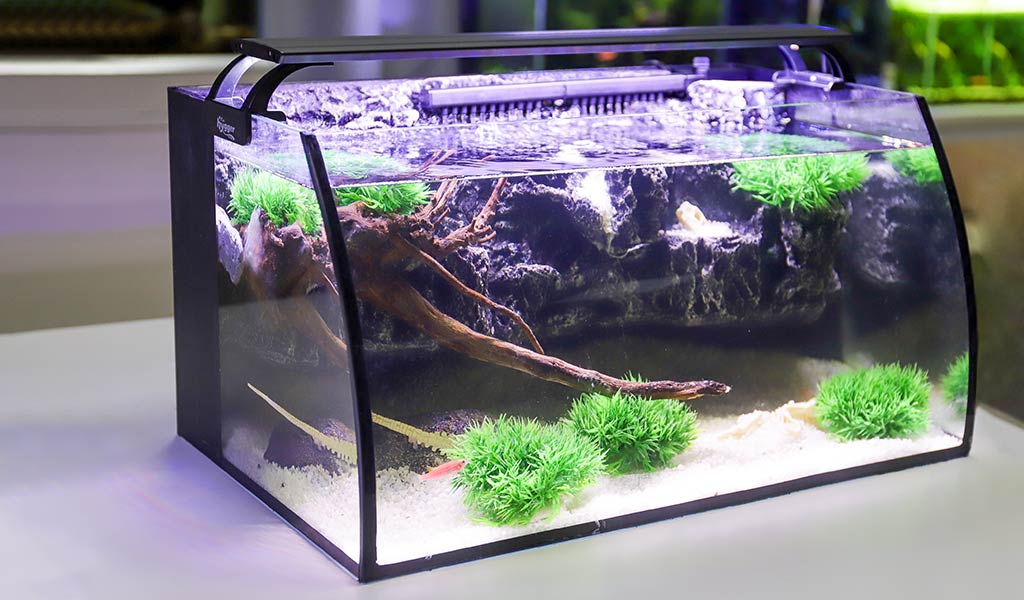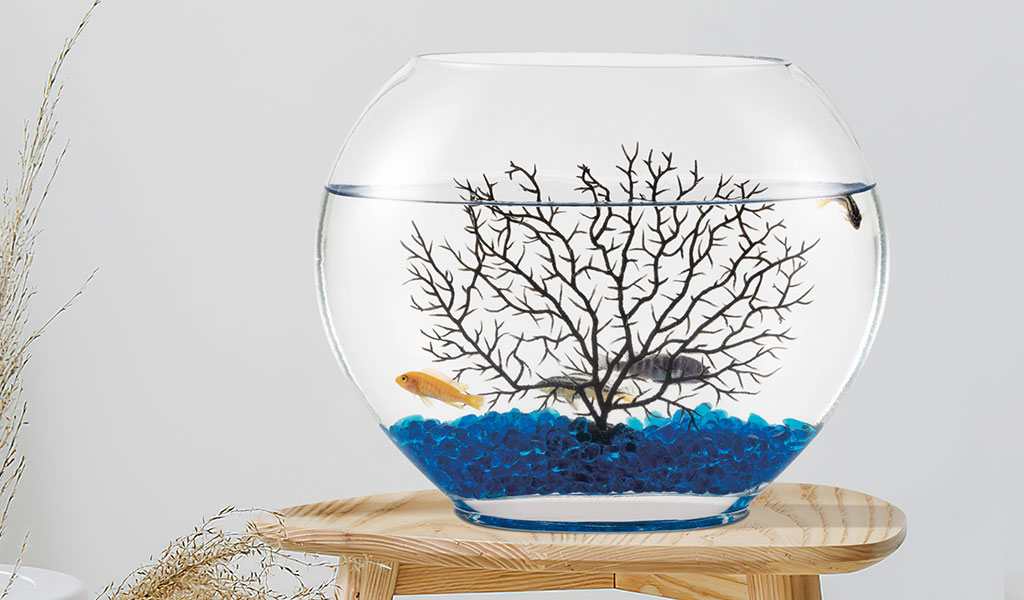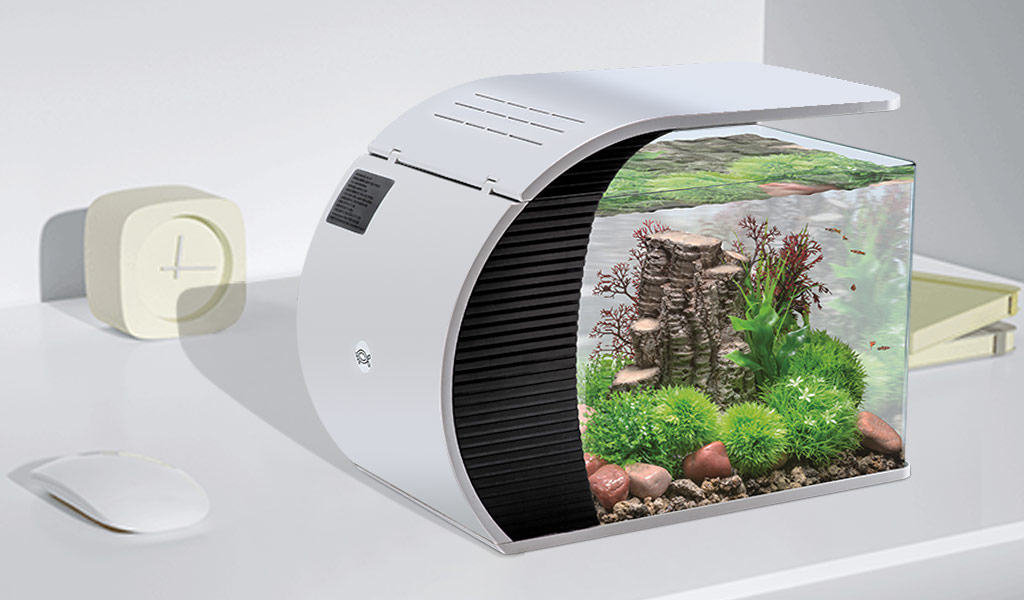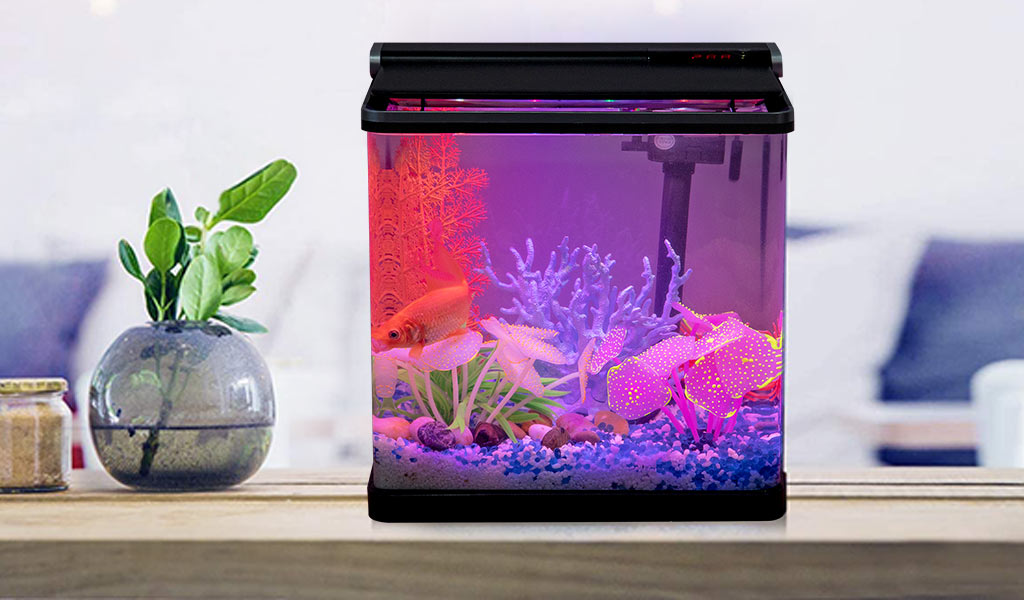How Do I Know When My Fish is Too Big For the Tank
For all fish keepers, choosing a fish tank can be the priority, a suitable tank is also crucial for your beloved fish because the fish tank is the environment they live in, and the condition of the fish tank directly determines the survival of the fish. Sometimes you even need to consider whether the fish grows very fast, and then you need to change the tank according to the growth of your fish. Although it sounds like a bit of a hassle, it is very important for the sake of your fish’s health. In this article, we will focus on the question: How do I know when my fish is too big for the tank?

Will my fish grow to the size of its tank?
There are a few different answers to the question, will my fish grow to the size of its aquarium? The general rule is that a small fish will reach its full potential in about a year, but many factors may affect the rate of growth. In most cases, a small fish will reach full size within about a year, and the longer it stays in its aquarium, the faster it will grow. One of the main reasons why a fish grows too big for the tank is that it has an incorrect environment.
Some species of aquarium fish are stunted in growth when the water is not changed enough. This is because they produce ammonia salts as a byproduct of their metabolism. These salts are harmful to the fish, degrading their physical condition and wreaking havoc on their immune systems. If you do not change the water often, your fish will stunt its growth and ultimately die before reaching maturity.
One common misconception is that fish grow to the size of their tank. While this may be true for some species, it is not the case for most. Most fish will die before they outgrow their tanks. You can prevent early fish death by giving them sufficient space and proper care. By following the below tip, you can prevent your fish from growing to their maximum potential. This way, you can enjoy the benefits of your new pet for years.
If your fish is already too big for its current tank, you may want to consider a larger aquarium. Fish are adapted to their environments, and if they feel cramped in a small tank, this will inevitably lead to health problems. A larger aquarium will accommodate both existing fish and any new additions. For those who are not sure about the best type of tank for their fish, a beginner’s guide to fish tanks will be helpful.

Fish keeping rule of thumb
There is a general rule of thumb when it comes to fish tanks. A one-inch rule is a good base, but the actual number of fish per gallon depends on several factors, including tank size and shape. The one-inch rule assumes slender fish, so a wide-bodied fish should be figured with one inch per twenty inches of surface area. The surface area rule ignores the shape of the tank, so a large-volume aquarium might not hold the same number of fish.
The one-inch rule for fish in a gallon applies to community-type fish, which are usually small (one to three inches). Larger species like the Oscars and tetras require more water to swim. If you are buying an aquarium with a unique design, use the surface area rule. Remember that if you’re not sure of the final tank size, you can always err on the side of under or over-sizing.
Another fish-keeping rule of thumb is to select a suitable aquarium for the fish. Small-sized tanks may be able to get away with the cheaper, hang-off-back style, but a large-sized aquarium needs biological filter media. Biological filter media is much safer for fish than tap water because chlorine destroys live bacteria. Although some species of fish can live in a community tank, it’s best to keep them alone to ensure their health and happiness.

How do I know if my fish tank is overcrowded?
You may have noticed that your fish are not showing any behaviors and are sticking to the corner of the fish tank. If your fish are often inactive, they are likely suffering from overcrowding. If your fish are lettinghargic, you should seek the help of a veterinarian to check your fish tank. When you do not find any symptoms of overcrowding, you can try to see if the fish are infected by stress.
Overcrowding a fish tank can be very dangerous and cruel for your fish. Not only will the water in your tank be dirty and smelly, but it could also cause fish diseases. To detect an overcrowding problem, you should observe your fish’s behavior. Some fish will display territorial behavior by marking territories or staying in a certain area of the tank. This behavior is a sign that the tank is overcrowded.
Ammonia and nitrite levels in tank water can rise. Ammonia is produced by fish and is harmful to them. It is a by-product of the nitrogen cycle. Too many of them can cause serious illness and even fish death. An overcrowded tank can lead to the toxicity of ammonia and nitrite. If your fish are exposed to both nitrate and ammonia, you may need to cycle your tank or change the water.

What can I do if my fish grows too big for my fish tank?
There are several ways to get rid of fish outgrowing fish tanks. The first option is to give the fish to someone with a suitable fish tank. This can be a good option if you want to buy another fish immediately. However, be sure to do your research first. Make sure you are well-informed about the fish’s needs before you buy it. Another option is to trade it in for money or other fish. You can also sell it to a pet shop, but the price will increase with every inch.
It will be difficult to get the fish to a new home if they feel trapped in a small tank. This is because fish grow in different ways depending on their species. Hence, it is best to choose a fish tank that matches the size of the fish you have.
Secondly, you should consider acquiring a fish that has the right habitat in a suitable tank. You won’t have to deal with the discomfort of finding out that the fish grew too big for the tank. If it doesn’t grow well in the new environment, you can try transferring it to a larger one. It is important to consider whether the new tank will be suitable for the fish and ensure that they can live in it.
